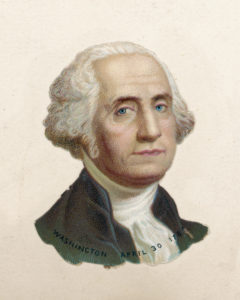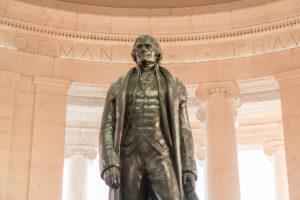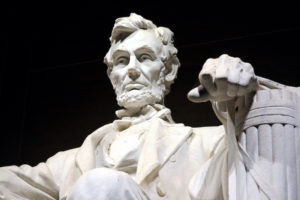
On Monday, we celebrate several U.S. presidents who contributed to our country. As with any discussion involving politics, a discussion about previous presidents risks generating varying opinions. However, in writing this blog, we focus not on politics. Instead, we aim to examine important lessons past presidents showed us about estate planning.
George Washington: Estate Planning Lessons

During his presidency, people generally loved George Washington. Writers waxed philosophical about his accomplishments. However, one significant achievement about which few people are aware is he took concerning his final affairs. Washington’s last will and testament, demonstrates that he carefully considered his final affairs. He also remembered many individuals by giving them items of personal property or specific bequests.
Modest Estate Planning Lessons

Washington provides an excellent example relative to the thought and care of crafting an estate plan. Even without the wealth that Washington possessed when he died, we can deliberately and thoughtfully leave meaningful items of personal property. Spend sufficient time and effort thinking about how we wish to leave possessions to our loved ones. Doing so provides a legacy which can potentially benefit future generations.
Estate Planning Lessons from Thomas Jefferson

While as famous as George Washington, Thomas Jefferson’s financial situation bode far less favorable than Washington’s. Despite his brilliant intellect and authorship of the Declaration of Independence, Jefferson struggled financially. In addition, he inherited debts from his family by cosigning on a loan for a friend who prematurely died. When Jefferson died, he left significant debts his family was forced to repay. Because Jefferson owned valuable real property but little liquid cash, his executor sold the family land at depressed market prices. The unfortunate result of these circumstances meant that Jefferson’s property did not pass down within his family.
Insolvent Estates

Myriad families today face similar problems with illiquid or insolvent estates. This issue often arises when a business or farm owner posseses significant wealth tied to their business or land. Unfortunately, in such a case, little cash reserves remain to settle debts or pay transfer taxes at death. This often causes families to feel intense pressure to sell the business or land at a loss.
Life Insurance in Estate Planning Lessons

Life insurance plays an important estate planning role. It often provides sufficient cash to pay a deceased individual’s debts or transfer taxes. With the proper type and amount of life insurance (and by using certain estate planning tools), an individual avoids the “land rich, cash poor” situation faced by Thomas Jefferson’s family.
Abraham Lincoln & Estate Planning Lessons

Another well-known and beloved US president—a lawyer, no less—very surprisingly died without a will or any other type of estate planning in place. Lincoln, like so many of us, quite possibly believed that he had many more years to address this important task. His tragic murder at the hands of a political malcontent plunged Lincoln’s family into a confusing and completely unfamiliar situation as they attempted to settle his affairs with no knowledge of where to begin. His oldest son, Robert, reached out to US
Dividing an Estate

Supreme Court Justice David Davis to take charge of Lincoln’s affairs. Justice Davis generously stepped away from his duties on the court to assist the Lincoln family with the local court process for settling Lincoln’s estate. His estate was divided between his wife and his living sons, most likely according to the default laws of the jurisdiction. However, it remains unclear whether this is how Lincoln would have wanted to see his property divided.

A key lesson is that no one knows when they will pass away. Even someone as important and well-versed in the law as Abraham Lincoln was caught unprepared for his untimely demise, sadly leaving others to guess what his wishes would have been with respect to his property. The family undoubtedly experienced significant distress and frustration as a result of not having a clear understanding or plan in place for handling Lincoln’s final affairs. Had Lincoln put some basic planning such as a will or a trust in place prior to his death, perhaps he could have helped ease his family through a very challenging time when he was no longer available to them.
Learning from These Presidents

There is a great deal more that could be discussed and learned from the experiences of these and other US presidents as it relates to estate planning. We hope these lessons will help you think about your own estate planning and what you might want to do differently going forward. Until then, Happy President’s Day!
About Skvarna Law in Glendora & Upland, California

Skvarna Law Firm operates offices in Glendora and Upland, California. Also, we provide legal services. We cover San Bernardino, Los Angeles, Orange, and Riverside Counties. This includes several cities. Upland, Ontario, Rancho Cucamonga, Fontana, Colton, Rialto, Chino, Chino Hills, Glendora, Claremont, Pomona, La Verne, Montclair, San Dimas, Azusa, Covina, West Covina, Diamond Bar, Walnut, La Puente, Corona, Norco & Mira Loma.


